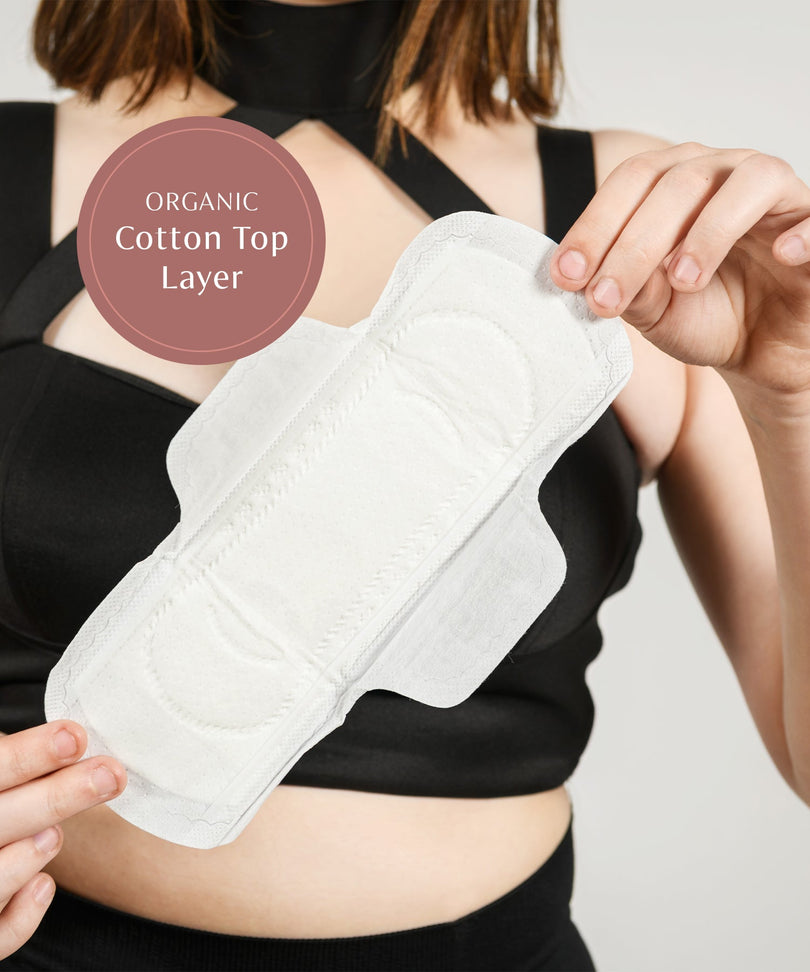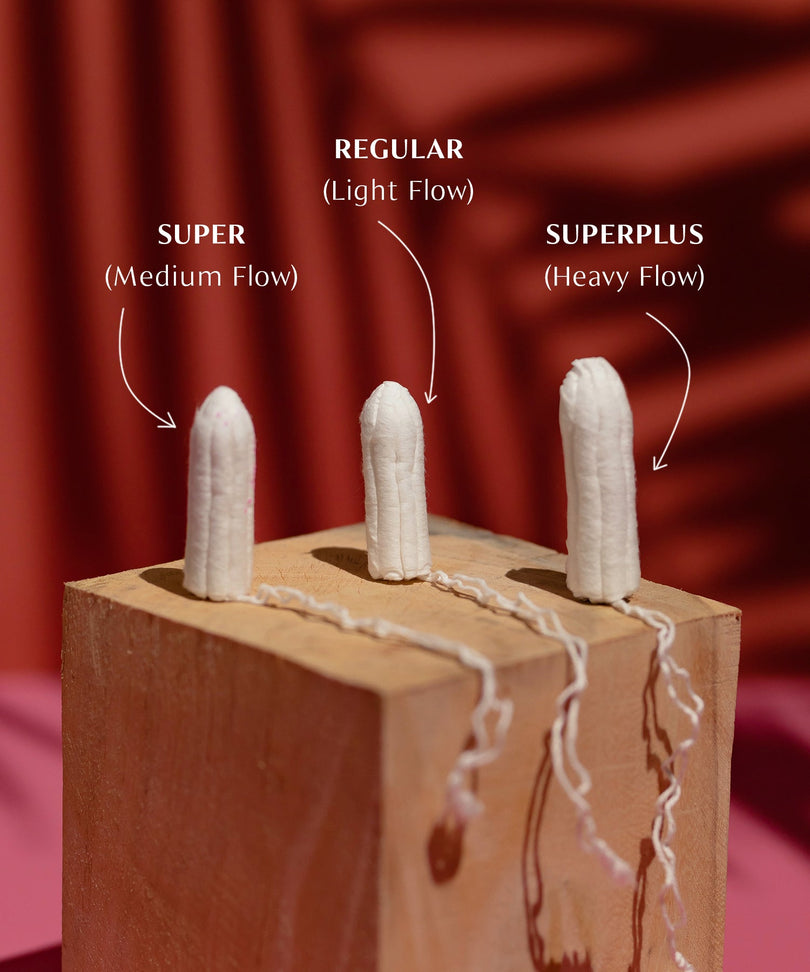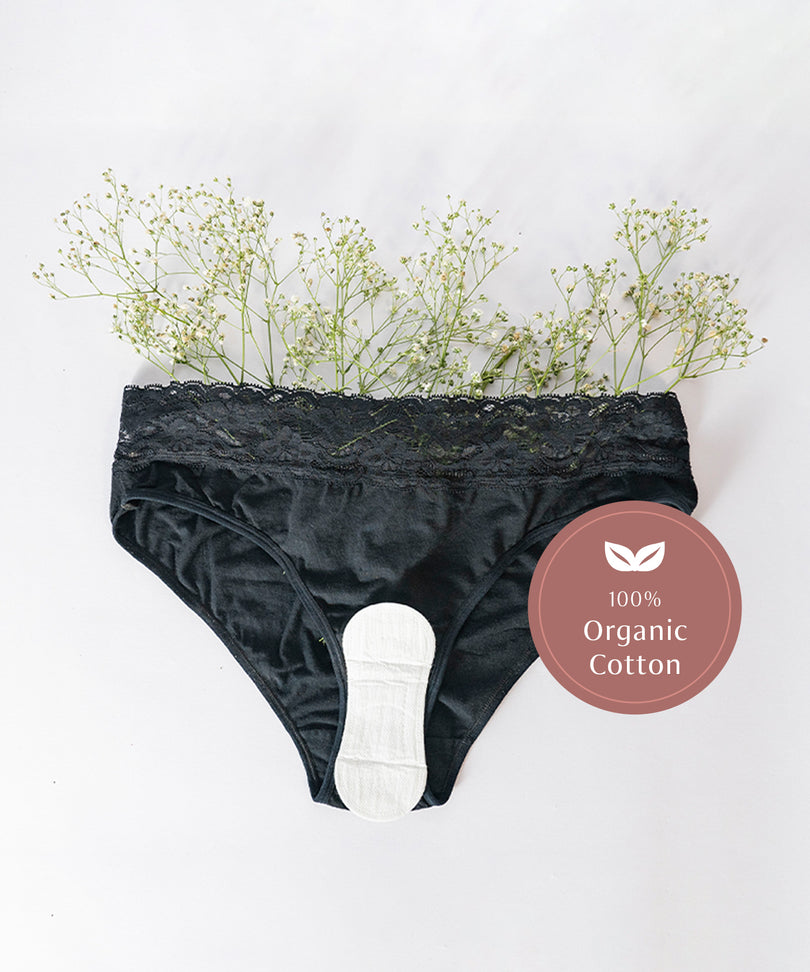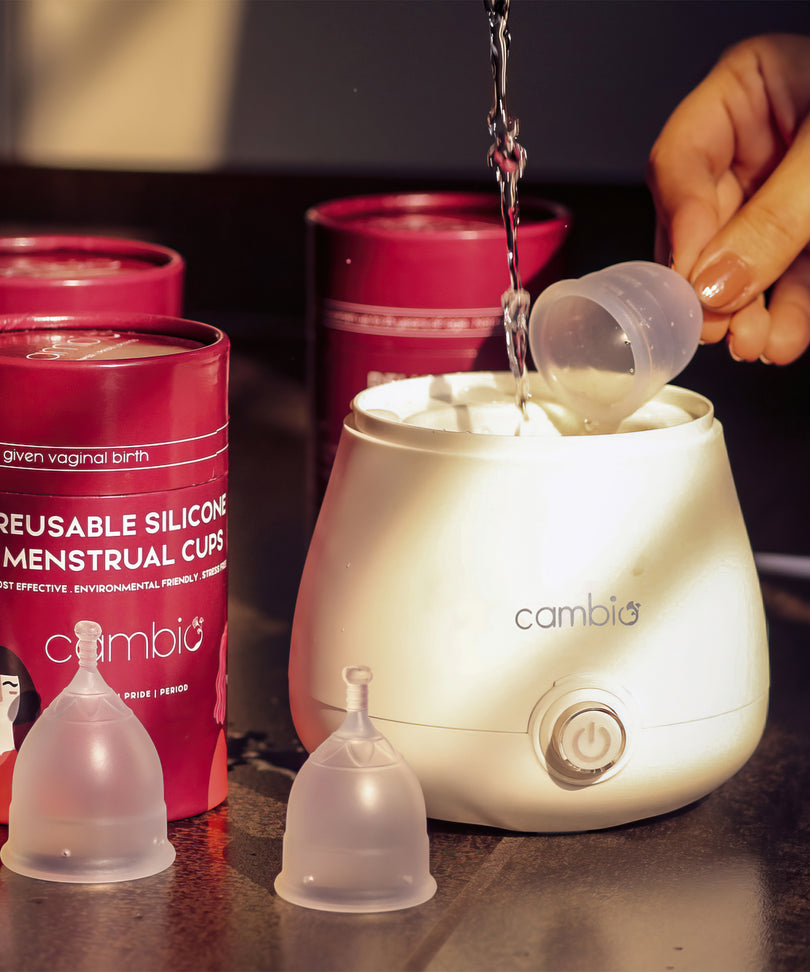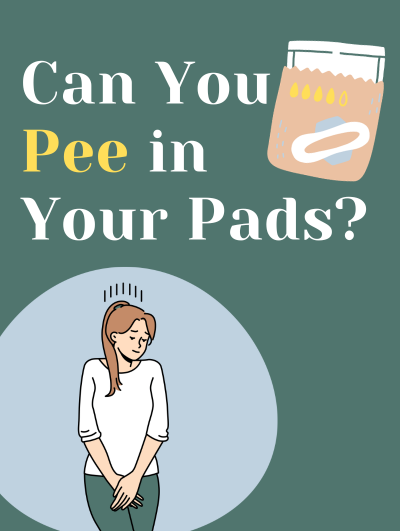Problem with a “Pee”: Why is Urinating on a Sanitary Pad a Bad Idea?
While the thought of multitasking – relieving yourself while avoiding a trip to the restroom – might seem efficient, there's a fundamental reason why urinating on a sanitary pad isn't recommended.
Sanitary pads absorb menstrual flow, not urine.
The materials used in these pads, such as absorbent cores and top layers, are tailored specifically to handle the consistency and volume of menstrual blood.
When it comes to urine, the dynamics change.
Urine is sterile when it leaves the body and can quickly become a breeding ground for bacteria once exposed to air. When you urinate on a sanitary pad, you're introducing moisture incompatible with the pad's absorption mechanism.
It creates a damp environment that can lead to a host of discomforts and hygiene issues. The absorbent core, adept at handling menstrual flow, might become oversaturated and unable to manage the sudden influx of liquid.
Consequently, the pad's efficacy is compromised, leading to possible leaks and discomfort.
Additionally, urine and menstrual blood could increase the odour and create an environment conducive to bacterial growth.
While the idea might be born out of convenience, urinating on a sanitary pad can lead to unintended consequences that compromise both your comfort and hygiene, leading to possible risks of infections.
Also read: Can sex make your period come early?
Alternative Measures to Urinating on a Sanitary Pad (When Not on Your Period)
Urination on a sanitary pad is not suitable from a hygiene and comfort perspective.
Luckily, there are alternative measures to consider, especially when you're not on your period. Here are some practical and healthier options:
- Proper Bathroom Breaks: The most straightforward solution is also the most effective. Ensuring you take regular bathroom breaks helps you maintain optimal hygiene and prevent potential discomforts.
- Use the Right Hygiene Products: If you're not on your period but still want extra protection, consider using panty liners. These handle light discharge and moisture without compromising your comfort. Cambio's panty liners, for instance, offer discreet protection, making them an excellent choice for staying fresh throughout the day.
- Stay Hydrated: Proper hydration can help you avoid sudden urges to urinate. Drinking water helps maintain healthy urine flow, reducing the likelihood of uncomfortable situations.
- Wash Hands and Areas: If you find yourself in a situation where a restroom isn't accessible and you need to relieve yourself outdoors, it's crucial to wash your hands and intimate areas afterward. It helps minimize the risk of bacterial contamination.
- Use Public Restrooms Wisely: While public restrooms might not be your first choice, they are safer than managing urination through makeshift methods. Carrying tissues or wipes can help you navigate public restroom use with ease.
Read more: Ways to take care of reproductive system
- Pack Extra Underwear: If you anticipate being in situations where bathroom breaks might be limited, packing an extra pair of underwear can provide peace of mind. This way, even if you encounter unexpected circumstances, you have a clean change readily available.
- Know Your Body: Understanding your body's cues can help you manage bathroom needs more effectively. If you feel the urge to urinate, try to find a restroom as soon as possible to prevent discomfort.
- Consider Adult-Sized Diapers: Adult-sized diapers can be a practical solution for uncontrollable bowels or medical conditions.
While it may initially feel embarrassing, these diapers offer leakage-free protection, preventing potential accidents and ensuring comfort. It's a wise choice when the alternative is the risk of urine-soaked clothes.
Remember, while urinating on a sanitary pad might seem like a convenient option in certain situations, it's essential to prioritize your health and hygiene.
Exploring alternative measures can help you navigate unexpected situations with confidence and maintain your overall well-being.
And when light protection is needed, Cambio's panty liners can be your discreet and reliable companion!
Also read: Does menstrual cup breaks hymen
Alternative Measures for Bowel Management During Your Period
- Practice Pelvic Floor Exercises for Muscle Strength:
Strengthening your pelvic floor muscles through exercises like Kegels can offer significant benefits for controlling urination.
These exercises involve contracting and relaxing the muscles that support your bladder and bowel.
Regular Kegels can improve muscle tone and enhance your ability to control the urge to urinate, giving you more flexibility in managing your restroom needs.
- Fluid Intake Management in Limited Restroom Situations:
If you anticipate being in situations where restroom access is limited, consider managing your fluid intake.
While it's necessary to stay hydrated, being mindful of your consumption can help you control the frequency of urination.
Adjusting your drinking habits based on your schedule can give you more control over when you need to use the restroom.
- Avoid Caffeine and Alcohol to Prevent Urinary Frequency:
Caffeine and alcohol are known diuretics that can increase your urge to urinate and contribute to dehydration.
If you're in situations where restroom access is restricted, consider limiting your consumption of these beverages.
It can help you manage your fluid balance more effectively and reduce the urgency to use the restroom.
- Prioritize Hydration:
Proper Hydration is equally important as managing water intake.
Dehydration can lead to concentrated urine that can lead to bladder irritation and increase the urge to urinate.
Finding a balance between staying hydrated and managing your restroom needs can help you navigate your day more comfortably.
- Discover the Cambio Advantage:
As you explore different ways to manage your restroom needs, consider the advantages Cambio Woman's innovative menstrual hygiene products have.
Our panty liners provide exceptional absorbency and leak protection, ensuring you can confidently move through your day.
They're comfortable and discreet while allowing you to focus on what matters most without worrying about leaks.
Just pair it up with our menstrual cup or tampon and add extra protection to your underwear!
Also read: Do organic pads help with cramps
Conclusion: Can You Pee or Urinate in Your Pads?
When handling those urgent moments and keeping ourselves comfortable, it's vital to know that peeing on a sanitary pad isn't good for our health.
We've all been there – when we feel pressed for time, the solution seems to be using what's on hand.
But taking a closer look at the potential risks and learning about better options is important.
By considering the suggestions we've talked about, like staying hydrated and trying exercises that help strengthen your muscles, you're looking out for your well-being.
These alternatives don't just keep you physically comfortable; they can also boost your confidence and calmness.
It's all about showing your body the care and attention it deserves.
Remember, your body is wonderful! Educating yourself, finding solutions that suit your way of life, and having the knowledge to make wise choices – are all steps toward a better understanding of your body.
As you explore these options, you're taking care of your health and gaining control.
This journey towards better ways to deal with these situations isn't just about learning; it's about feeling empowered and in charge. As you walk this path, may you discover the strategies that work best for you, and may they help you face whatever comes your way with confidence. After all, taking care of yourself is a way of embracing a happier and healthier life.
Also read - Can I wash my hair during periods?

